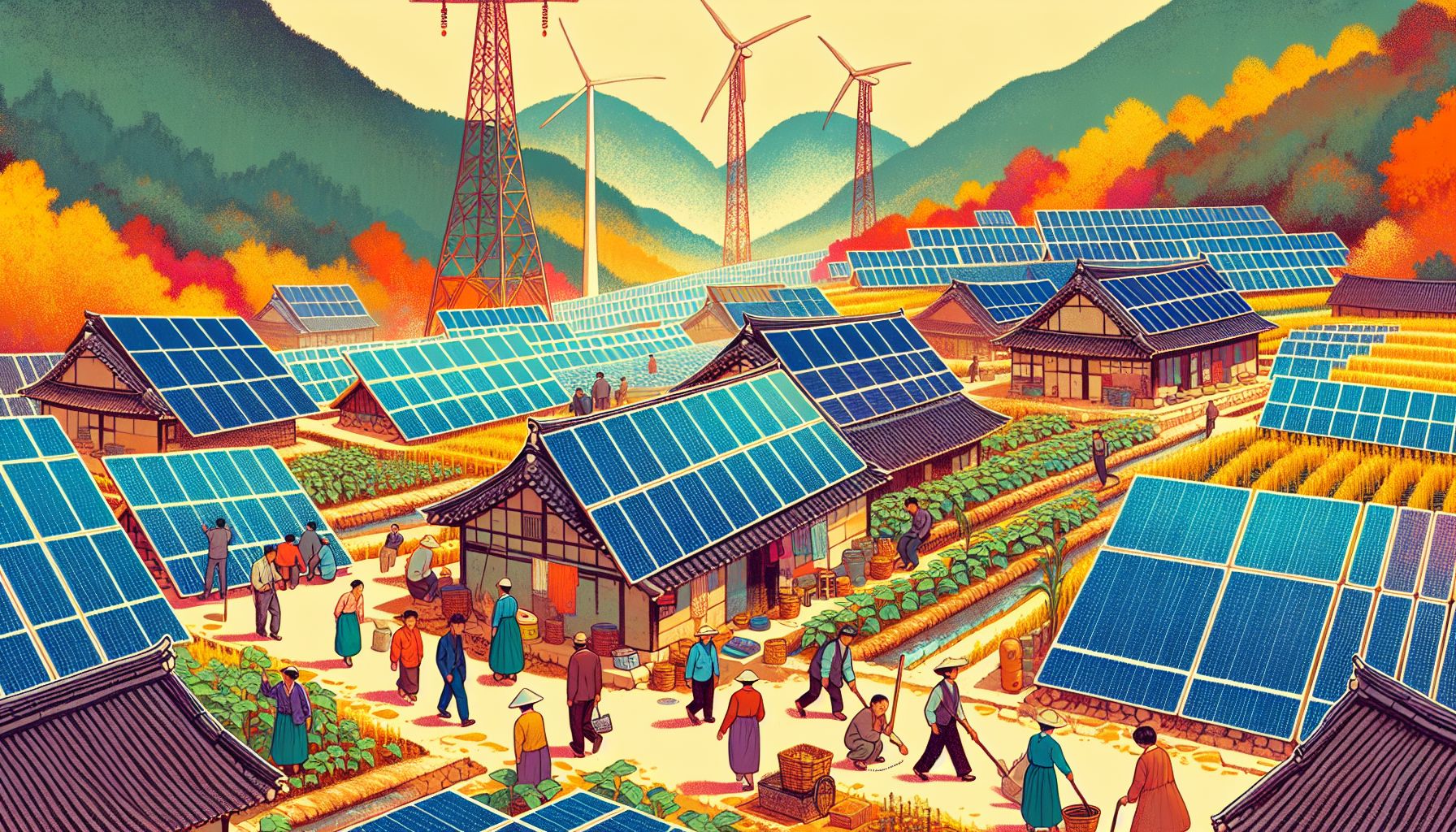Yeoju Village Leads Korea in Solar-Powered Agricultural Innovation

Yeoju, Friday, 11 April 2025.
In Yeoju-si, Korea, a community-owned solar power project generates 120 million KRW annually, funding local welfare and sustainability, exemplifying rural integration of clean energy.
Pioneering Community Solar Infrastructure
The Guyang-ri village in Yeoju has established South Korea’s first community-owned solar power plant, consisting of six generation facilities with a total capacity of 1 megawatt [1]. Village chief Jeon Ju-yeong reports that the project generates approximately 100 million won in net profits annually, with all benefits directly supporting community initiatives [1]. The innovative aspect of this project lies in its funding structure - entirely financed through long-term low-interest bank loans and resident contributions, without relying on government subsidies [1].
Economic Impact and Community Benefits
The solar initiative has transformed local infrastructure and services. The revenue supports essential community services, including a free village bus service, a community restaurant, and various educational programs for residents [1]. This project aligns with South Korea’s broader climate goals, as the nation works toward reducing greenhouse gas emissions by 40% compared to 2018 levels by 2030 [2]. The success in Guyang-ri demonstrates how rural communities can contribute to national sustainability targets while building economic resilience.
Future Expansion and Agricultural Integration
The village has outlined an ambitious expansion strategy, targeting an increase to 5 megawatts capacity [1]. This plan includes specific allocations: 2MW for energy self-sufficiency, 3MW for agrivoltaics and low-carbon agriculture, and additional capacity to support young farmers and establish an energy basic income village [1]. The project’s success has prompted discussions about policy reforms, with village leaders advocating for the recognition of agricultural-photovoltaic facilities as agricultural installations to enable access to the Agricultural Guarantee Fund [1].
Model for National Climate Response
The Yeoju initiative serves as a blueprint for South Korea’s broader climate response strategy. As the country develops its carbon neutrality infrastructure through 2050 [3], the Guyang-ri model demonstrates how local communities can actively participate in national sustainability goals. The project exemplifies the government’s vision of integrating climate solutions with economic development, as outlined in recent policy frameworks targeting greenhouse gas reductions and renewable energy adoption [2][3].